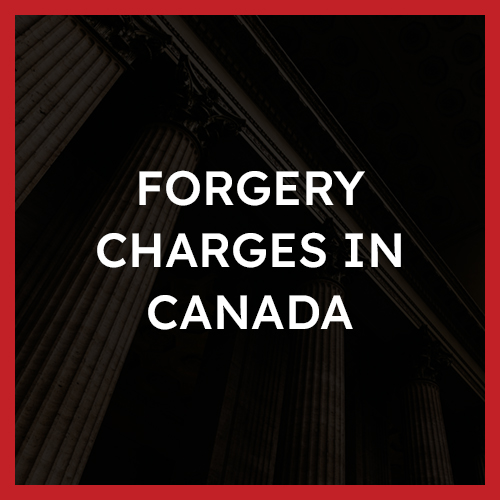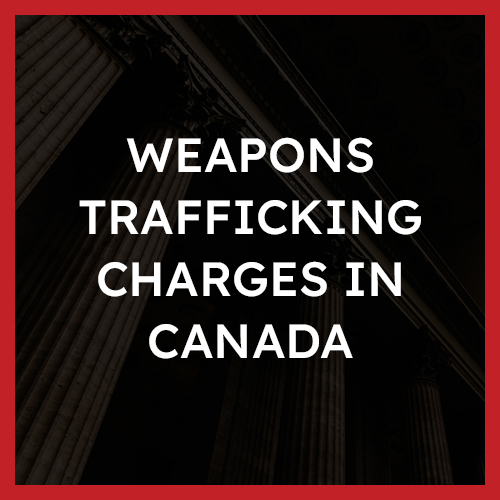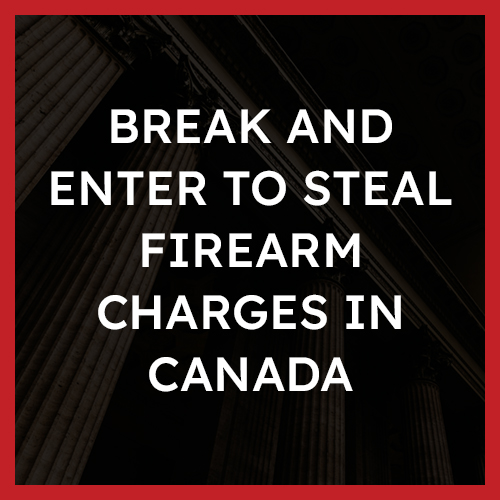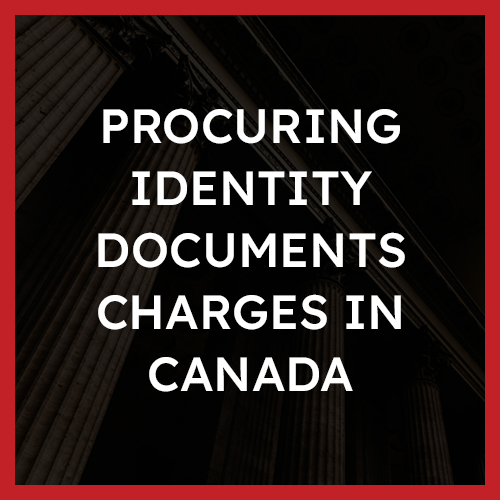Forgery (s. 366, s. 367) Charges in Canada: Offences, Defences, Punishments
What is Forgery?
 Forgery is covered under s.366, and 367 of the Criminal Code.
Forgery is covered under s.366, and 367 of the Criminal Code.
Forgery, sometimes referred to as a “white collar” crime in Canada, includes many acts. Commonly, forgery entails the alteration of a genuine document, for a fraudulent purpose, that could potentially prejudice or defraud someone else who may later rely on the forged document.
Forgery is a hybrid offence in Canada. This means that the Crown can elect to proceed by summary conviction or indictment.
Examples
Common examples of forgery include the following:
- adding or removing a signature on a document;
- changing the dollar value of a cheque;
- altering a medical prescription from a doctor;
- altering a name or date of birth on government identification; or
- adding an artist’s name to a piece of art who did not make the art.
Defences
The defences available to a charge of forgery, under s.366 are entirely dependent on the facts of the case.
However, some common defences to forgery include the following:
- the alteration made to a genuine document must be material;
- the alteration made to a genuine document was the result of carelessness or negligence;
- the forged document was not intended to be used for any purpose;
- a breach of the Charter resulting in the exclusion of evidence the Crown can use to prove the offence.
Punishment
The punishment for forgery will depend on whether the Crown has chosen to proceed via summary conviction or indictment.
Forgery charges do not carry with them any mandatory minimum penalties; however, the Criminal Code does list the maximum punishments as follows:
- Summary: Maximum of 2 years less a day in jail and a $5,000.00 fine.
- Indictment: Maximum of 10 years in jail.
Overview of the Offence
According to s.366 of the Criminal Code:
366 (1) Every one commits forgery who makes a false document, knowing it to be false, with intent
(a) that it should in any way be used or acted on as genuine, to the prejudice of any one whether within Canada or not; or
(b) that a person should be induced, by the belief that it is genuine, to do or to refrain from doing anything, whether within Canada or not.
Under s.321 of the Criminal Code, a “false document”, for the purposes of s.366 of the Criminal Code, consists of a document:
(a) the whole or a material part of which purports to be made by or on behalf of a person
(i) who did not make it or authorize it to be made, or
(ii) who did not in fact exist,
(b) that is made by or on behalf of the person who purports to make it but is false in some material particular,
(c) that is made in the name of an existing person, by him or under his authority, with a fraudulent intention that it should pass as being made by a person, real or fictitious, other than the person who makes it or under whose authority it is made;
Under s.366(2) of the Criminal Code, a person “makes” a false document, for the purposes of s.366 of the Criminal Code, by:
(a) altering a genuine document in any material part;
(b) making a material addition to a genuine document or adding to it a false date, attestation, seal or other thing that is material; or
(c) making a material alteration in a genuine document by erasure, obliteration, removal or in any other way.
Under s.366(3) of the Criminal Code, the offence of forgery is “complete”, for the purposes of s.366 of the Criminal Code, when:
(3) Forgery is complete as soon as a document is made with the knowledge and intent referred to in subsection (1), notwithstanding that the person who makes it does not intend that any particular person should use or act on it as genuine or be induced, by the belief that it is genuine, to do or refrain from doing anything.
Under s.366(4) of the Criminal Code, the offence of forgery can be considered complete, for the purposes of s.366 of the Criminal Code, even when the false document itself is not complete:
(4) Forgery is complete notwithstanding that the false document is incomplete or does not purport to be a document that is binding in law, if it is such as to indicate that it was intended to be acted on as genuine.
Under s.366(5) of the Criminal Code, the making of a false document is not considered forgery, under s.366 of the Criminal Code, when:
(5) No person commits forgery by reason only that the person, in good faith, makes a false document at the request of a police force, the Canadian Armed Forces or a department or agency of the federal government or of a provincial government.
The case of R v Benson (M), 2012 MBCA 94, concisely outlined that the Crown must prove, beyond a reasonable doubt, that:
- the accused made the document;
- the document in question is a false document. A false document includes a material alteration to a genuine document;
- the accused knew the document to be false;
- the accused intended that the document be acted upon by another to their prejudice or that they would be induced by the document to do or refrain from doing anything.
The Guilty Act (Actus Reus)
The actus reus for forgery is established by proof, beyond a reasonable doubt, of one of the following:
- the accused made a false document by altering any material part in a genuine document;
- the accused made a false document by adding any material part in a genuine document;
- the accused made a false document by adding the document to a false date, attestation, seal, or other thing that is material; or
- the accused made a false document by removing a material part in a genuine document.
The Guilty Mind (Mens Rea)
The mens rea of forgery includes proving, beyond a reasonable doubt, that:
- the accused knew the document to be false;
- the accused intended that someone
a. would be prejudiced by treating the document as a genuine document; or
b. would be induced to do or refrain from doing anything by treating the document as genuine.
The case of R v Cowan, 1961 CanLII 37 (ONCA) provided guidance that the Crown need not prove that the false document resulted in actual prejudice or inducement to do or refrain to do anything. Instead, the Crown is simply required to prove that the accused intended for the false document to have such an effect.
Forgery Defences
How to Beat a Forgery Charge
The availability and strength of any defence depend entirely on the specific facts of your case. However, the following are some common defences that may be used when fighting a forgery charge.
The alteration must be material
The alteration made to a document must be in a material particular. A document simply containing lies, which do not individually or collectively or constitute a material change, does not constitute a material alteration.
The Crown will not be able to secure a conviction unless it is proven that the document “is false in reference to the very purpose for which it was created”.
Carelessness or negligence
A strong defence to forgery could entail that the false document was created because of carelessness or negligence. The Crown will not be able to secure a conviction unless it is proven the accused had the knowledge and intent to create a false document. Mistakes or oversights that result in a false document, regardless of how egregious, are insufficient to ground a conviction if knowledge and intent are absent.
Any applicable Charter defences
The Crown must prove the elements of forgery a reasonable doubt. The Crown will likely attempt to prove forgery using evidence obtained by police during their investigation, such as the false documents alleged to contain the forgery. However, evidence obtained by police must be compliant with the Canadian Charter of Rights and Freedoms (the “Charter”).
The Charter affords every person a number of legal rights, such as the right to be secure against unreasonable search and seizure, the right not to be arbitrarily detained or imprisoned, the right to be informed of the reasons of their detention or arrest, and the right to counsel without counsel.
If the police obtain any evidence in violation of your Charter rights, then a court may exclude this evidence from being used by the Crown at the trial depending on the severity of the Charter violation.
Forgery Punishment
According to s.367 of the Criminal Code:
Every one who commits forgery
(a) is guilty of an indictable offence and liable to imprisonment for a term not exceeding ten years; or
(b) is guilty of an offence punishable on summary conviction.
The sentence that you may receive for a conviction for criminal harassment will depend heavily on the circumstances of your case and whether the Crown elects to proceed summarily or by indictment.
Forgery – Summary Offence
If the Crown elects to proceed via summary conviction and you are convicted of forgery, then you are potentially liable to a maximum sentence of two years less a day in jail or a $5,000.00 fine.
You also have available to you the option for an absolute or conditional discharge, suspended sentence, fine, fine and probation, jail and probation, jail and fine, and a conditional sentence.
Forgery – Indictable Offence
If the Crown elects to proceed via indictment and you are convicted of forgery, then you are potentially liable to a maximum sentence of 10 years in jail.
You also have available to you the option for an absolute or conditional discharge, suspended sentence, fine, fine and probation, jail and probation, jail and fine, and a conditional sentence.
Frequently Asked Questions
Is forgery a crime in Canada?
Yes, forgery is a criminal offence in Canada and is covered under ss.366, and 367 of the Criminal Code.
Can you go to jail for forgery?
Yes, you can go to jail for forgery. This can occur even if it is someone’s first criminal offence.
The amount of jail time can vary depending on the facts of the case and whether the Crown has chosen to proceed via summary conviction or indictment.
A forgery charge proceeding by summary conviction could result in up to 2 years in jail. Alternatively, a forgery charge proceeding by indictment could result in up to 10 years in jail.
What is the punishment for forgery?
The punishment for forgeries, such as the type of sentence or the amount of jail time, depends on the facts of the case and whether the Crown proceeds by summary conviction or indictment.
However, the options available for sentence, whether the Crown proceeds by summary conviction or indictment, include an absolute or conditional discharge, suspended sentence, fine, fine and probation, jail and probation, jail and fine, or a conditional sentence.
Published Decisions
R v Valois, [1986] 1 SCR 278
The accused was charged with three counts of uttering forged documents. The accused prepared and conspired to use forged documents. However, the accused never used these forged documents. The accused was acquitted of all counts because the Crown failed to prove that the accused uttered the forged documents.
You can read the full decision here.
R v Nuosci, 1991 CanLII 7238 (ONCA)
The accused was charged with forgery and uttering a forged document. The accused altered cheques by changing the amount from $300 to $30,000. The accused then made photocopies of the cheque and distributed the cheque amongst several people. The Ontario Court of Appeal held that photocopies of a false document, in this case the altered cheque, can itself be considered a false document. The accused was convicted of both forgery and uttering.
You can read the full decision here.
R v Currie, 1975 CanLII 1347 (ONCA)
The accused was charged with uttering a forged document. The accused received a cheque from a stranger in a hotel bar who asked the accused to cash the cheque in exchange for five dollars. However, the accused was unaware that the cheque was forged. At trial, the trial judge applied the doctrine of wilful blindness and convicted the accused. On appeal, the Ontario Court of Appeal quashed the conviction on the basis that an accused, in order to be found “wilfully blind” to using a forged document, must deliberately omit or ignore information in order to remain ignorant.
You can read the full decision here.
About The Author
Ask A Question
We endeavor to respond to questions within 24 hours. If your matter is urgent, please call our office or submit a request for a free consultation.







